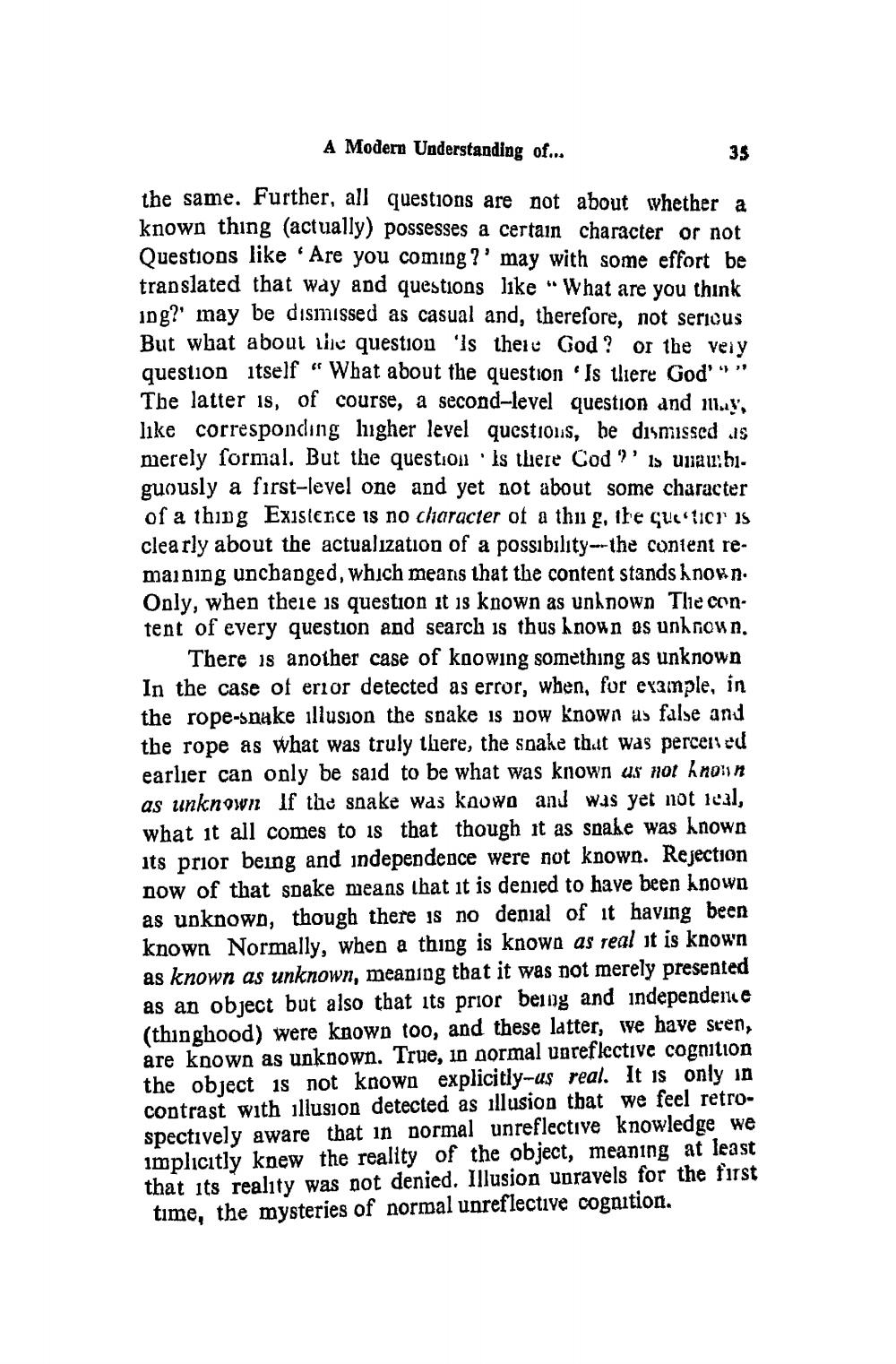________________
A Modern Understanding of...
35
the same. Further, all questions are not about whether a known thing (actually) possesses a certain character or not Questions like 'Are you coming?' may with some effort be translated that way and questions like "What are you think ipg?' may be dismissed as casual and, therefore, not serious But what about liic question 'Is theiu God? or the very question itself " What about the question Is tliere God'"" The latter is, of course, a second-level question and 111. like corresponding luigher level questions, be dismissed as merely formal. But the question 'Is there Cod!' is unau:hi. guously a first-level one and yet not about some character of a thing Existence is no character of a thug, the Clcrtice is clearly about the actualization of a possibility--the content remaining unchanged, which means that the content stands known. Only, when theie is question it is known as unknown Tlie content of every question and search is thus known as unknown.
There is another case of knowing something as unknown In the case of error detected as error, when, for example, in the rope-snake illusion the snake is now known as false and the rope as what was truly there, the snake that was percen ed earlier can only be said to be what was known as not hnolin as unknown If the snake was kaowo and was yet not 1031, what it all comes to is that though it as snake was known its prior being and independence were not known. Rejection now of that spake means that it is denied to have been known as unknown, though there is no denial of it having been known Normally, when a thing is known as real it is known as known as unknown, meaning that it was not merely presented as an object but also that its prior being and independence (thin ghood) were known too, and these latter, we have seen, are known as unknown. True, in normal unreflective cognition the object is not known explicitly-us real. It is only in contrast with illusion detected as illusion that we feel retrospectively aware that in normal unreflective knowledge we implicitly knew the reality of the object, meaning at least that its reality was not denied. Illusion unravels for the first time, the mysteries of normal unreflective cognition.




